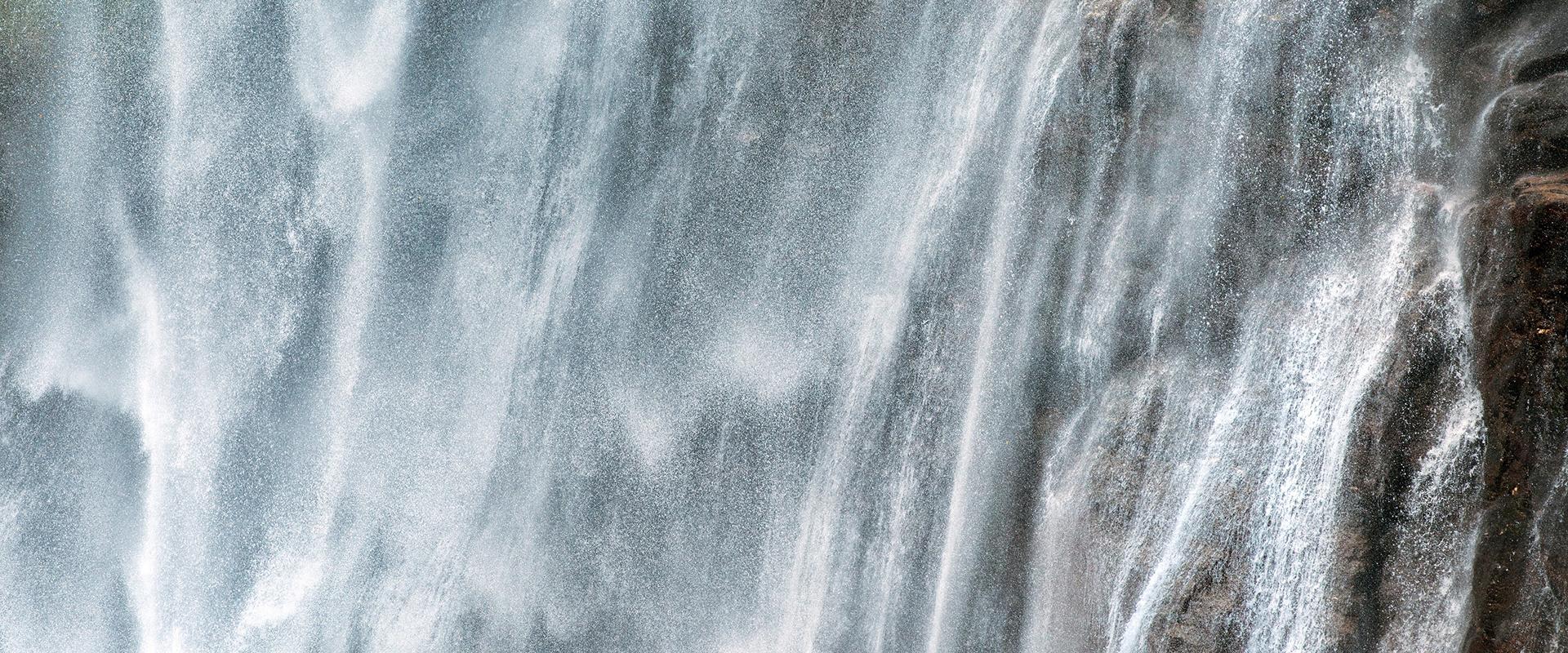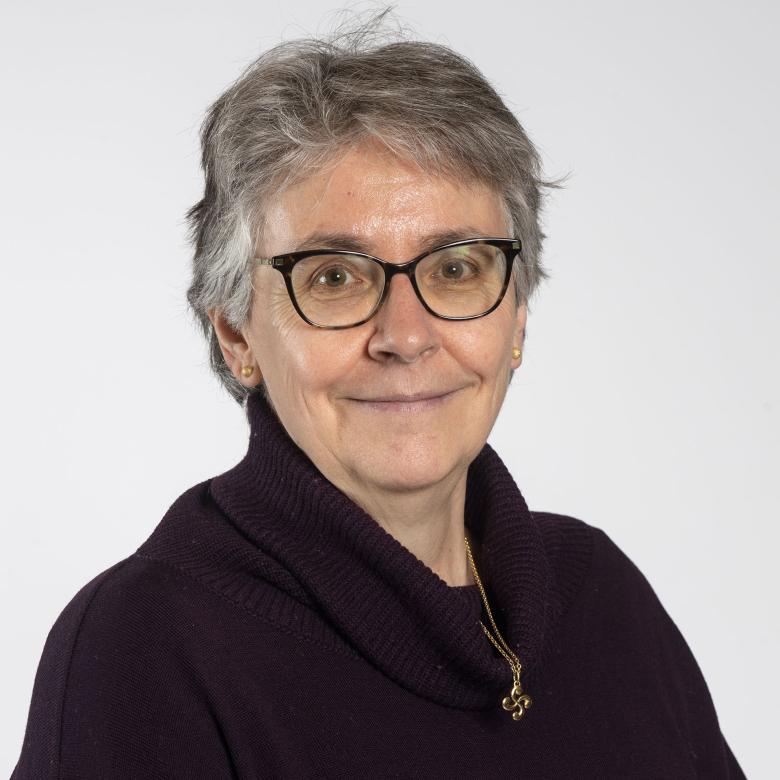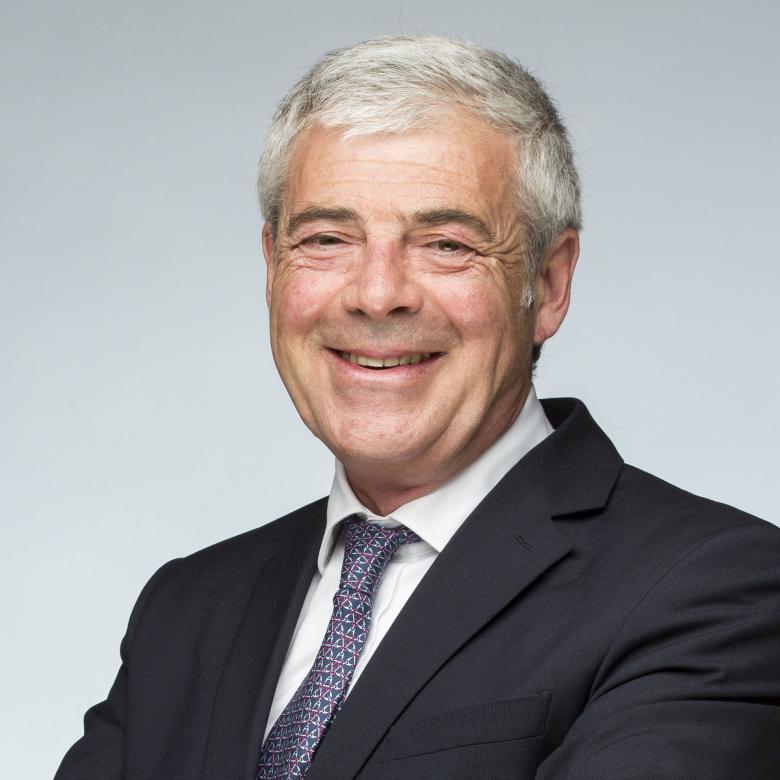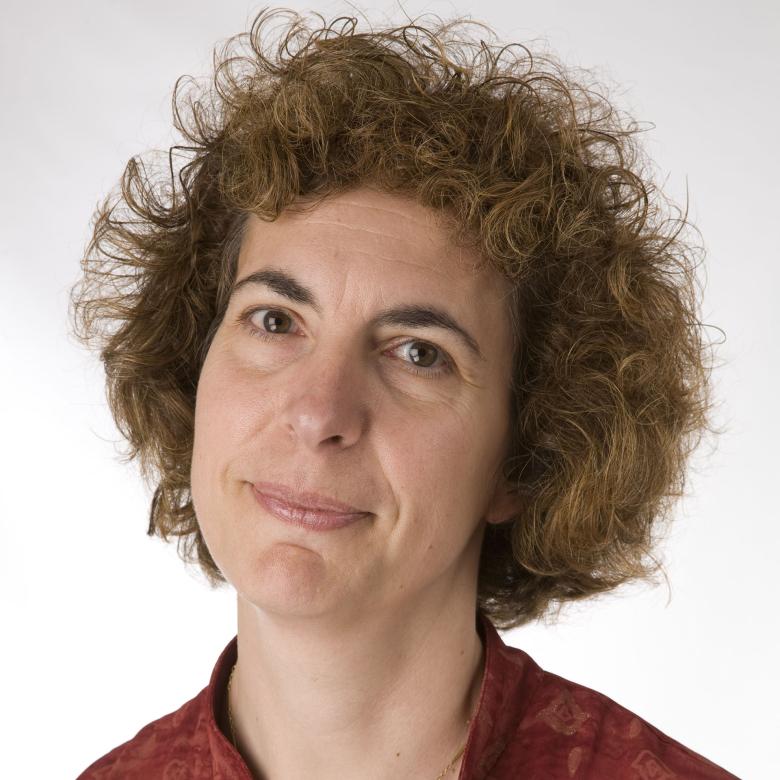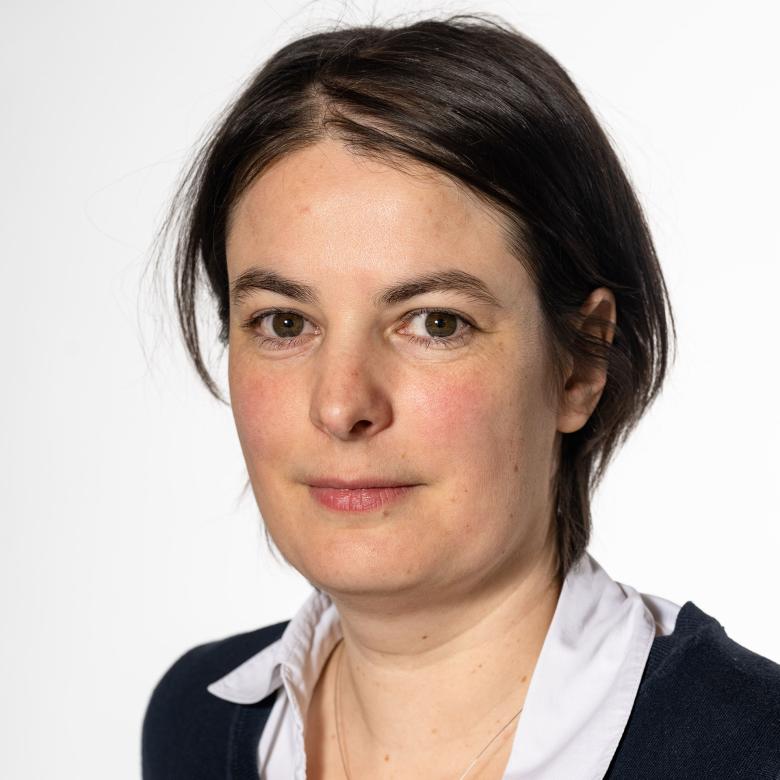Four BRGM scientists were recently honoured for their commitment and exemplary careers in research and innovation on major environmental issues.
Dominique Darmendrail was promoted to Chevalier of the ordre national de la Légion d'Honneur. Philippe Gombert, Laurence Chery and Violaine Bault were awarded the medal of Chevalier of the ordre national du Mérite. Find out more about their careers.
Dominique Darmendrail was promoted to Chevalier of the ordre national de la Légion d'Honneur
Dominique Darmendrail is a renowned specialist in France and Europe in the management of water and polluted environments.
She has held a number of positions, both as a scientific consultant for the Ministry of Ecology and the European Commission, and as a research director, notably at BRGM and the French Research Agency (ANR). In particular, her work has significantly influenced the development of European and French policy on the management of polluted sites and soils.
Dominique Darmendrail is a member of several committees, including the steering committee of France Water Teams. She is a consultant for the European Commission on a number of environmental programmes. She has published nearly a hundred scientific articles and papers. She is currently one of France's leading experts on policies for water and polluted environments, with a strong international reputation. At the end of a career as a scientist at the intersection of research and environmental policy, she has succeeded in drawing on scientific knowledge to help shape public policy at the highest level.
Career
Dominique Darmendrail began her professional career in 1988 after defending a thesis in hydrogeology at the University of Bordeaux on the transfer of metals in alluvial aquifers in heavily industrialised areas. She then did a post-doctoral thesis at INRA Versailles on the problems of pesticide transfer in volcanic soils under tropical climatic conditions (West Indies).
She joined BRGM in 1989 at the Lille centre, as an engineer and project manager. She gradually specialised in the management of polluted sites and soils, at a time when the issue of brownfield sites was a major environmental problem in France and Europe. She became a leading expert in methodologies for analysing the risks associated with polluted sites and soils. In 1993, she took over responsibility for BRGM's "Waste - Brownfields - Polluted Sites" thematic centre in Lille, which was BRGM's first specialised centre in this field. She has played an important role in shaping France’s policy for the management of polluted sites and soils on behalf of the Ministry of the Environment, particularly by developing methodological guidebooks for risk analysis, which have become the national standard for all players involved (site owners, engineers, soil remediation companies, etc.).
She is unusual in having been able to combine a career as a scientist and a consulting engineer, drawing both on issues in the field and international research to improve national methodologies.
When BRGM began focussing on environmental issues in 1998, with the aim of transforming the institution into a national centre for research and expertise, she was given the task of setting-up and then managing the "Environment and Innovative Processes" department, comprising 80 engineers, researchers and technicians. Her work has enabled BRGM to play a decisive role at the national and European levels in the management of polluted environments. She has repositioned BRGM's historic know-how in mineral processing to make it France's leading research centre for mineral recycling technologies.
In 2007, she took up a position as advisor on European affairs to BRGM's Board of Directors and was responsible for the scientific secretariat of the Common Forum, a European body bringing together environment ministries and agencies in charge of shaping European policies for the management of industrial pollution.
In 2014, she joined the French Research Agency (ANR) as scientific manager in charge of the environmental technologies programme and coordinator of the Joint Programme Initiative on water (Water JPI). In particular, she built the European Water4All partnership and then coordinated its launch, from 2017, under the Horizon Europe framework programme, bringing together more than 70 partners from 31 countries.
Lastly, she rejoined BRGM in 2020 to head the "Water management and global change" scientific programme, and in 2021 successfully set up the priority research programme (PEPR OneWater) in partnership with CNRS and INRAE as part of France 2030.
The Legion of Honour: France's highest national distinction
The Legion of Honour is France's highest national distinction and one of the best known across the world. For two centuries, it has been awarded on behalf of the Head of State to France's worthiest citizens in every field of activity. It now has 79,000 members.
The 2024 Civilian list includes 352 people, divided equally between men and women, from all sectors and all levels of professional responsibility, both well-known and unknown to the general public. There are 287 chevaliers, 45 officiers, 14 commandeurs, 4 grands officiers and 2 grand’croix. This distinguished elite from all walks of life, all have in common the commitment of each individual to serving the general interest, which is the primary criterion for awarding France's highest national distinction.
Philippe Gombert
Philippe Gombert, after a career as an expert on water issues in the academic world, in the corporate world and at BRGM, has held a number of executive positions within BRGM, culminating in 6 years as head of BRGM's International Division and 4 years as head of the Water, Processes and Analytics Directorate. He was a member of BRGM's Board of Directors for 11 years, during which time he made an active contribution to its management and development.
Throughout his career, Philippe Gombert has demonstrated his ability to develop ambitious international projects that promote the know-how of French companies and institutions, particularly concerning water management, as well as helping countries in the Global South to develop and become self-sufficient. From 2008, he spent 14 years as a director of the French Water Partnership (PFE - Partenariat Français pour l'Eau), a French association grouping over 200 partners (public and private stakeholders in the water sector). He was also appointed Advisor in Foreign Trade (CCEF - Conseiller du Commerce Extérieur) in 2019, given his extensive international experience. Through his effective and ongoing action over the years, Philippe Gombert has thus contributed to the renown and development of French expertise in water issues, a subject which is obviously of increasing concern in the context of climate change.
Career
With a PhD in hydrology, Philippe Gombert began his career as a researcher at the University of Bordeaux before switching to the world of expert appraisal with the G. Lefort consultancy and then at BRGM. It was at this point that he discovered and became involved in international projects, which were to become a defining feature of his career. He coordinated a project on the management of water resources in the Tadla plain in Morocco before spending 2 years in Bolivia where he managed the water resources assessment and management project for the city of Cochabamba on behalf of BRGM. This experience led him to be recruited by Antea as head of the Water Resources Evaluation, Management and Exploitation department within the Technical Division. In this role, he managed a team of 25 people responsible for carrying out water resource management projects in France and abroad (South America, Maghreb).
Building on this international experience, Philippe Gombert joined Antea's international management team in 1997, first as project director, notably in Latin America and North Africa, then as deputy director before becoming Antea's International Director in 2003. In 2007, Philippe Gombert was appointed Deputy International Director before taking over as BRGM's International Director in 2012. He drew on his knowledge of Africa and South America, and his experience in organising European projects, to help BRGM set up major mineral mapping and prospecting projects, while actively striving to include water issues. He was involved in strengthening BRGM's visibility and reputation in Africa.
In 2019, Philippe Gombert was appointed head of the brand new Water, Processes and Analytics Division, created by the merger of two previous divisions. He thus runs the institute's largest division, which accounts for almost 20% of the total workforce. In addition to BRGM's analytics laboratories, it houses BRGM's centres of expertise in the fields of water management, ore treatment processes and the management of polluted sites and soils. During the 4 years he spent in the Water, Processes and Analytics Division, Philippe Gombert was heavily involved in structuring and running the division. In particular, he was responsible for the project to rebuild BRGM's analytics laboratories, which was officially undertaken in 2021. More recently, he has mobilised its teams to anticipate and respond effectively to requests from the public authorities dealing with the drought crisis.
Laurence Chery
Throughout her career, Laurence Chery has shown remarkable commitment and energy in the service of the community and the general interest.
She has authored or co-authored 33 scientific publications, presented 37 papers at conferences and contributed to a number of reference works and guidebooks on groundwater. She has twice been honoured for her work, with the 2007 Gosselet Prize awarded by the Société Géologique de France and the 1999 Castany Junior Prize awarded by the Comité Français d'Hydrogéologie.
Career
Laurence Chery began her professional career in 1988, after defending a thesis at the Hydrology and Isotopic Geochemistry Laboratory at the University of Orsay (Paris XI), on the hydrochemical and isotopic investigation of underground circulation in granite formations, as part of research into the storing of radioactive waste in this type of environment.
She then worked for 2 years in consultancy firms (AQUASCOP and HYDRATEC) on water and environmental issues, before joining BRGM in 1990.
Before 2004, she held a number of research engineering posts, focusing mainly on investigating groundwater quality by means of isotope geochemistry. Then, for 13 years, she took on managerial responsibilities, as head of a unit within the department responsible for groundwater knowledge and management, while continuing to be involved operationally. She has consequently overseen activities relating to resource management and the corresponding environmental impacts, the acquisition, use and dissemination of water data, and the assessment and use of knowledge about water.
During this period, Laurence Chery's research activity and, above all, her expert appraisal work have been very intense, with several significant contributions to strategic projects for the implementation of national public policies on groundwater. These include the development and implementation of water information systems, access to groundwater data (ADES - Accès aux Données sur les Eaux Souterraines) and the national database on water abstractions (BNPE - Banque Nationale sur les Prélèvements en Eau). She has also taken part in a number of national working groups on a range of subjects, including the collection and structuring of water data, the qualitative and quantitative management of groundwater and the development of groundwater-quality monitoring networks in France under the Water Framework Directive. She has also been fully involved at national and international levels in compiling dictionaries and defining formats for exchanging groundwater data.
In 2017, Laurence Chery was appointed Deputy Director of BRGM's regional network. She was responsible for supervising the Centre and North-East regional divisions and, from 2020, the Great West sector, which includes the Normandy, Brittany, Pays de la Loire and Nouvelle-Aquitaine regional divisions. She shared her expertise on groundwater with all the regional divisions. At the same time, she helped manage the institution as a member of the steering committees for two scientific programmes, "Groundwater and global change" and "Data, services and digital infrastructures". She has also been involved in a number of internal BRGM bodies. For example, she was a member of BRGM's Covid crisis unit.
In addition to her work at BRGM, Laurence Chery is very active in professional groundwater associations. She is a member of the Société Géologique de France (SGF) and the Comité Français d'Hydrogéologie (CFH) within the International Association of Hydrogeologists (IAH). General Secretary of the CFH from 2001 to 2018, then Vice-President until June 2019, she currently remains a member of the Board of Directors. She co-founded the CFH’s H2i sub-committee on Hydrogeology, Hydrology and Isotopes. She was also a member of the Association des géologues du Bassin de Paris (AGBP) and the Association des Géologues du Sud-Ouest (AGSO). Finally, since 2022, she has been a member of the Scientific Advisory Board of the Loire Bretagne Water Agency.
Violaine Bault
Violaine Bault is the national coordinator of the Groundwater Bulletin (BSN - bulletin de situation des nappes). This award spotlights her major role in supporting crisis management for the 2022 and 2023 droughts, in-house at BRGM and also at the ministerial level and for the general public.
During the 2023 drought, she was a member of the drought crisis unit set up at BRGM, playing a major role in relaying information to the BRGM teams, both at the Orléans scientific centre and in the regions, and in coordinating the provision of support needed by the authorities. This required a high degree of adaptability, availability and responsiveness.
During this time, Violaine Bault set up the procedure for publishing the regular groundwater status bulletin. The bulletin was used to communicate the state of aquifer levels to all the national decision-making bodies that were set up (the Inter-ministerial Crisis Unit, the Agricultural Drought Unit, and the Hydrological Anticipation and Monitoring Committee, led respectively by the Prime Minister's office, the Minister for Agriculture and the Minister for the Environment).
Violaine Bault also handled all the press conferences when each bulletin was published, as well as conducting several dozen interviews and scientific outreach activities. Thanks to her communication work, BRGM’s groundwater expertise has been brought to the attention of the French government and the general public.
Career
In 2017, at the time of the regional reform, she joined BRGM's unit for “Assessment and development of knowledge on water” under the aegis of its Water, Environment, Processes and Analytics Directorate. She then took over coordination of the Groundwater Bulletin.
Violaine Bault works mainly on projects for quantitative groundwater management. In particular, she contributes her expertise in monitoring and forecasting aquifer levels to projects providing input for public policy at national and international levels.
Her most notable work involves the implementation of a methodology for producing piezometric maps, from the field campaign to the interpolation of results, as well as the development of databases and methodologies for monitoring-networks. She also undertakes global modelling work to forecast aquifer levels (MétéEAU Nappes).
National Order of Merit
A republican institution created during the 20th century, the Ordre National du Mérite is the second national order after the Légion d'Honneur. Its purpose is to reward "distinguished achievements" and stimulate public-spirited initiative in France. Like the Légion d'Honneur, the Ordre national du Mérite is a universal order that honours people from all spheres of activity. It now has 177,000 members.
The November 2023 civil group of the Ordre National du Mérite honours 1,004 people from a wide range of fields. It comprises 846 chevaliers, 130 officiers, 24 commandeurs and 4 grands officiers.

